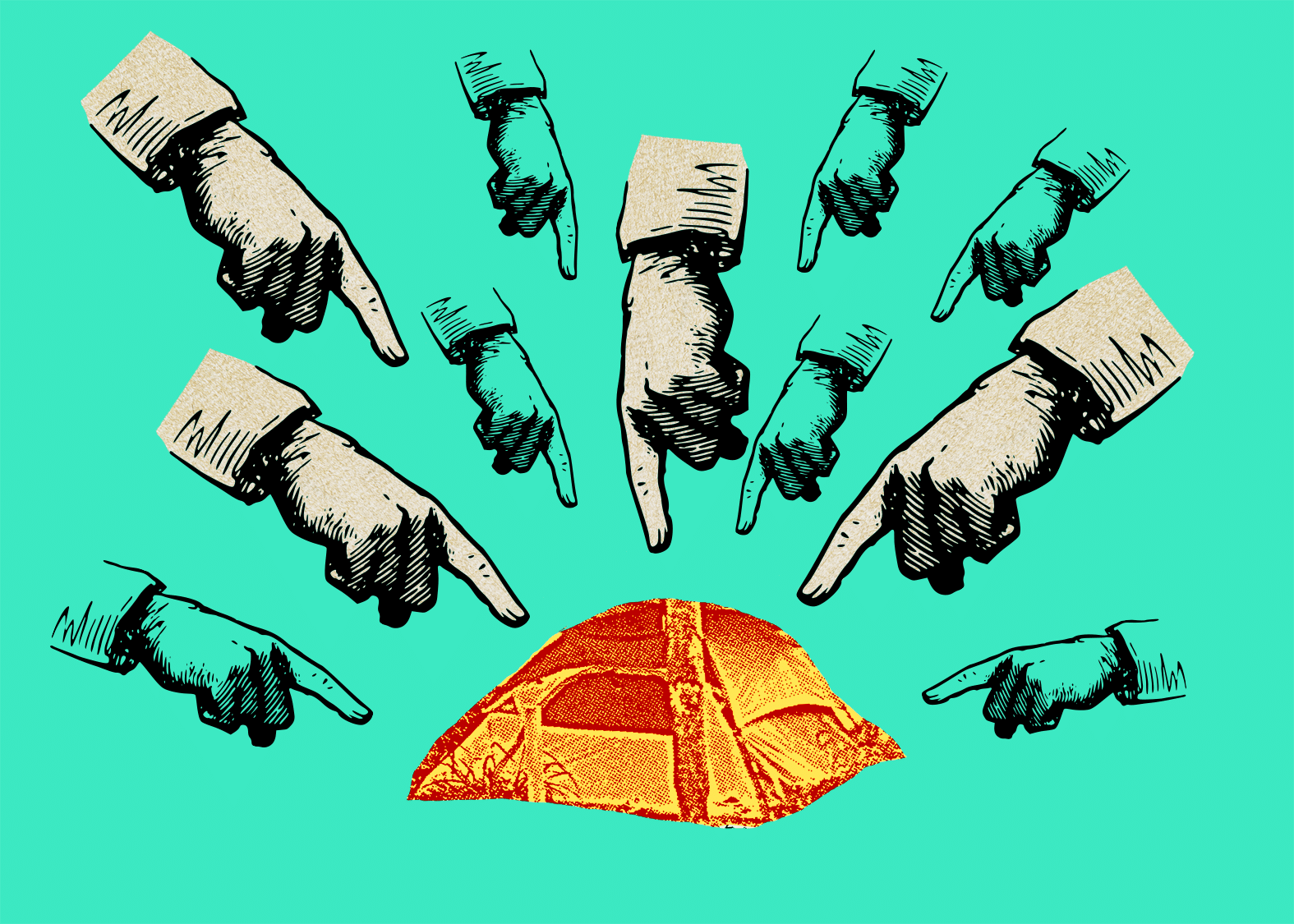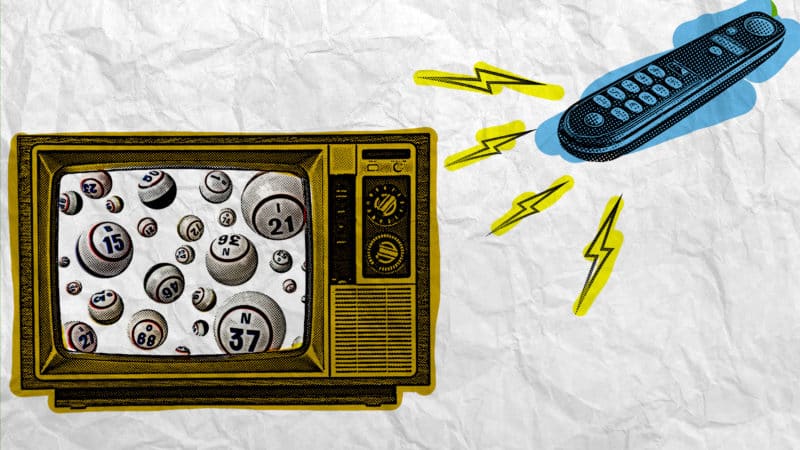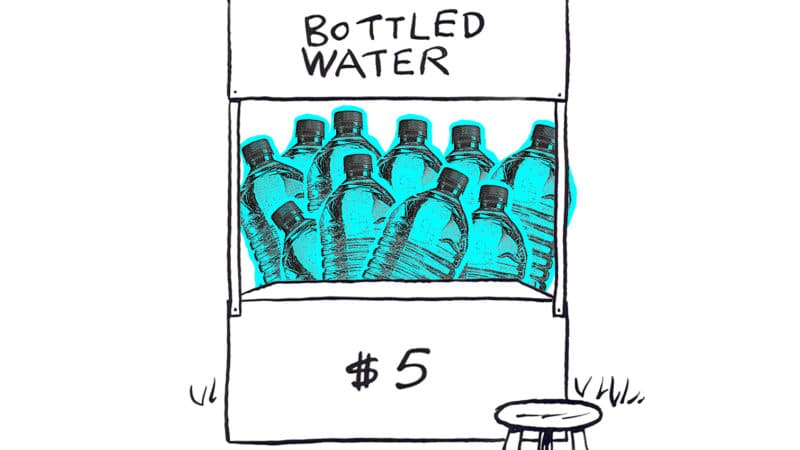Florida has one of the highest rates of assault and victimization of those experiencing homelessness. So much so, Florida made us a protected class, but it hasn’t helped.
By Mary Stewart
It was like any other day. My husband and I had scraped up enough change to get laundry done at the local laundromat in Mangonia Park. At that time, we were camping out in West Palm Beach after having lived in an abandoned moving van behind a church for several months.
While the clothes were in the wash cycle, I walked behind the church to wash up using the water spigot. I had previously lived behind the church, so I didn’t bother to check out my surroundings, but as I began to lay out my hygiene items, a man suddenly came up from behind me and snatched my purse.
I ran back to the laundromat and collapsed on the floor in front of my husband hyperventilating. Once I calmed down, we proceeded to look into nearby dumpsters hoping to locate my discarded purse, but didn’t have any luck.
But we did not call the police. It was certainly not the first time I was victimized while homeless, and I had realized long before that day that filing a police report was pointless.
In Kentucky, I had been sexually assaulted four times in a period of three months while homeless, which triggered the onset of Post-Traumatic Stress Disorder. When I tried to report the last assault, I was so hysterical that the EMTs tied me to a bed for four hours and referred me to psychiatric care. I filed a formal report several months later, but nothing was ever done about it.
My most recent sexual assault occurred in Lake Worth in May 2020 when I accepted a ride back to my camp from a stranger, who yanked me into the back of the van and attacked me.
Of course, the first thought that comes to mind is that I must live a risky lifestyle to be victimized so many times, but as a homeless person, simply sleeping outdoors, stepping into a wooded area, or getting into a vehicle with the promise of a ride, a meal, or work can be risky and result in victimization.
My friends have had their back pockets sliced open and their backpacks stolen while asleep, but often theft has occurred in broad daylight when a friend has left their cell phone plugged into an outdoor outlet, or left their bicycle unattended for a mere five minutes.
The sad reality is that desperate people are often the most vulnerable. Once, I read about a homeless man who was stabbed over thirty times after he got into a truck with a stranger who offered him $50 to help move a washing machine. Simply accepting work from strangers can place a homeless person in a dangerous situation, but when your stomach is rumbling with hunger, you will accept any job that’s offered.
And sometimes, it will work out just fine. My husband was offered work from a local pressure cleaning contractor while panhandling and ended up with a long-term gig. It’s kind of like a game of Russian roulette where we gamble our lives hoping for an opportunity to earn a little bit of money.
Many people have told me that it was my fault I was victimized because I “placed myself in those situations”. And I guess, in a sense, I did. Homeless people do tend to take chances that place them at higher risk, but we are just trying to survive, and predators take advantage.
While homeless victimization may occur anywhere, it is especially prevalent in Florida — the Sunshine State has been ranked as being one of the most dangerous places for homeless people to reside, only being overtaken by California. So much so, Florida lawmakers added homelessness as a protected class and changed crimes against the homeless as hate crimes in 2010, but I have never known that law to change anything.
Although both men and women have experienced victimization, women seem to be at greater risk. According to a 2005 study including 737 homeless women in Florida, 78.3% of the homeless women were survivors of sexual assault or domestic violence.
Homeless people do tend to take chances that place them at higher risk, but we are just trying to survive, and predators take advantage.
While it may seem as though lawmakers are attempting to protect the homeless by adding homeless status as a protected class, many laws specifically target the homeless population — like camping bans and public urination, and others are unfairly levied against the homeless — such as the open container law.
It’s hard to say exactly why Florida appears to be so dangerous for the homeless, but due to the warmer climate and insufficient homeless resources, many homeless people, myself included, sleep outdoors which increases our vulnerability.
Once, my camp was set on fire by a man who had sent threatening text messages to my group of homeless friends, but since that man was sleeping on a relative’s back porch himself, the hate crime statute was never applied. As a matter of fact, charges weren’t filed until the same man burglarized a home a few months later. Even then, the State Attorney only pursued the case as criminal mischief.
Unfortunately, the police have never seemed interested when I’ve tried to report a crime. Just last month, I was a victim of physical assault and attempted robbery, but the police were more concerned about the fact that we were trespassing, so I let it go. Once in a while, I’ll encounter an officer that actually cares, such as the time when my cell phone was snatched and a detective went out of her way to retrieve it for me, which I greatly appreciate.
I still continue to sleep outdoors, even though I’m now more than well aware of the risk that’s involved. Although a shelter may be safer, resources are limited in Palm Beach County, and belongings are even more likely to be stolen in a shelter environment.
However, I have become very particular about where I will sleep and which people I will hang out with. I have walked for miles to get back to my camp and even requested rides from the police rather than get in a car with a stranger. If a good samaritan offers to buy me a meal, I insist on meeting them at the nearest fast-food restaurant and refuse to get in their car.
I carry my most important items in a backpack instead of a purse and never leave it unattended. As far as the rest of my belongings, I store those in a plastic tub placed deep within the bushes. I always keep my cell phone handy and look around hyper-vigilantly before heading into the woods. While I certainly recommend the concept of safety in numbers, it’s equally important to find a group of homeless people that can be trusted.
Deep down, I still seethe with resentment over never having obtained justice for what has happened to me. It burns me up inside to see law enforcement harass the homeless for panhandling, open containers, trespassing, and public urination — which are petty crimes — but doing nothing when a homeless person is raped, beaten, or robbed.
Actually, I think that’s part of the reason that the homeless are such easy targets — most of us don’t report victimization, and when we do, nobody seems to care. Something needs to change. No one deserves to be victimized regardless of whether they live in a mansion, or sleep in a cardboard box.
As the Preamble of the Constitution says, liberty and justice is supposed to be for all. That includes the homeless population. If violent criminals are allowed to get away with harming the homeless, they’ll continue to do so and eventually move on to higher-risk victims. Instead of worrying about people sleeping outside and begging for change, law enforcement needs to get the violent criminals off the streets.
Homeless people deserve justice just like everybody else.



